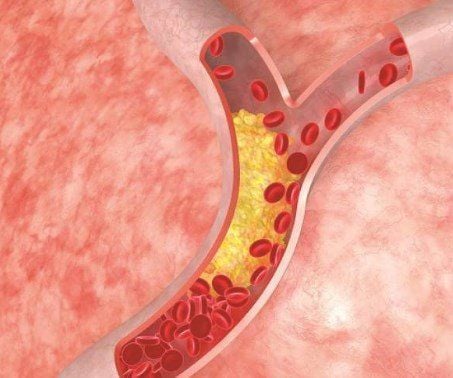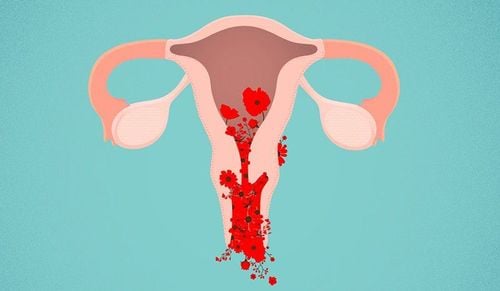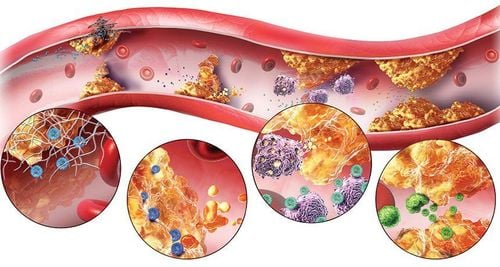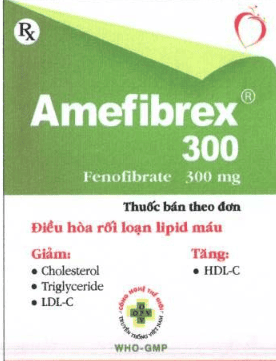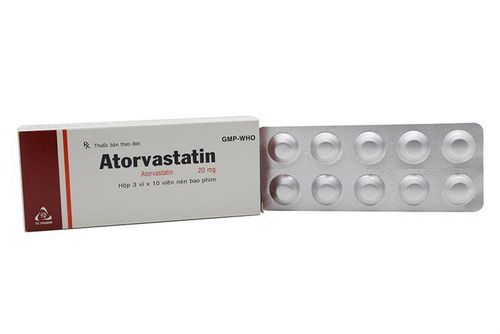This is an automatically translated article.
High blood fat is a disorder of blood lipids, increasing harmful cholesterol in the body and reducing the amount of good cholesterol in the body. Timely and effective treatment of high blood fat helps to improve the disease condition and prevent dangerous complications.1. What is high blood fat?
High blood fat is also known as dyslipidemia or hyperlipidemia, hypercholesterolemia. The disease is characterized by an increase in harmful fat and a decrease in protective fat. Patients will be diagnosed with high cholesterol when the blood lipids exceed the safe threshold as follows:
Total cholesterol > 6.2 mmol/L. LDL-cholesterol > 4.1 mmol/L. Triglycerides > 2.3 mmol/L. HDL cholesterol <1 mmol/L.
Trắc nghiệm: Bạn có hiểu đúng về huyết áp cao không?
Huyết áp cao còn được gọi là kẻ giết người thầm lặng vì bệnh thường không có triệu chứng. Thiếu hụt kiến thức về huyết áp cao có thể làm cho tình trạng bệnh trở nên trầm trọng hơn. Dưới đây là những câu hỏi trắc nghiệm vui giúp bạn hiểu đúng về bệnh cao huyết áp.2. What complications does high blood fat cause?
Initially, the symptoms of high blood fat are quite vague and the patient has not yet felt the impact of the disease on health. However, over time, excess LDL cholesterol will stick to the artery walls more and more, forming thick plaques, narrowing the arteries and reducing blood flow to the heart, brain, limbs, ... In addition, the plaque can also break off, forming blood clots, causing many dangerous complications:
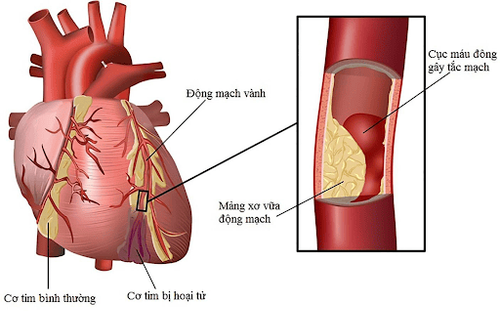
Mỡ máu cao tạo thành các mảng xơ vữa động mạch, gây tắc mạch
Coronary heart disease: Plaque builds up in the arteries reducing blood flow to the heart. This condition leads to angina or heart attacks. Over time, the patient's heart weakens and, if left untreated, can lead to heart failure. Heart attack: The plaque breaks off, forming blood clots in the arteries that can prevent the heart from getting enough oxygen, causing heart attacks. Stroke: Similar to a heart attack, strokes occur when there is a lack of oxygen to the brain. This phenomenon occurs because the plaque built up from excess LDL-cholesterol breaks down, forming a blood clot, blocking the arteries that supply oxygen to the brain. Without oxygen, brain cells die, symptoms such as sudden weakness, paralysis, difficulty seeing or talking, etc. High LDL cholesterol causes diabetes and increases the risk of diabetes. chance of cardiovascular disease. High LDL-cholesterol causes high blood pressure, leading to an early stroke. Hyperlipidemia can lead to fatty liver, impaired liver function and liver cancer.

Rối loạn mỡ máu có thể gây tăng huyết áp và tăng nguy cơ mắc bệnh tim mạch
3. How to treat high blood fat
Currently, the treatment of fatty blood mainly consists of 2 purposes: improving symptoms and preventing complications. The solution is to use medicine and maintain a scientific lifestyle, healthy diet.
3.1 Treatment of high blood fat with drugs
4 drugs commonly used to lower blood cholesterol levels include:
Statins: mainly lower LDL-cholesterol, reducing the risk of heart attack or stroke. It is advisable to start at a low dose. The dose can be doubled if there is no effect after 4-6 weeks of treatment. Niacin: helps reduce LDL-cholesterol, triglycerides and increase HDL-cholesterol. Bile acid-binding resin: lowers LDL-cholesterol. Fibric acid derivatives: reduce blood triglycerides.
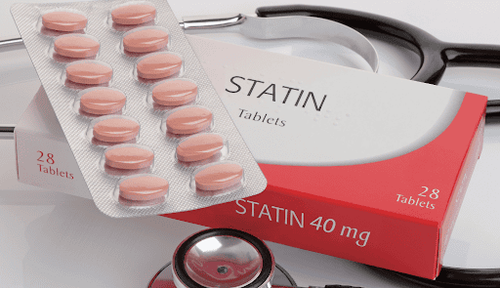
Statin được sử dụng để điều trị máu nhiễm mỡ
Attention when treating dyslipidemia for patients with other diseases:
Treating high cholesterol in patients with diabetes: putting lifestyle changes first, combined with statins to lower LDL -cholesterol and fibrates lower triglycerides. A statin-type lipid-lowering agent should be used in diabetic patients over 40 years of age when blood lipid profiles are normal. Metformin lowers triglycerides is a better treatment option than many other drugs in people with diabetes. Patients with very high triglyceride levels and difficult to control blood sugar should be treated with insulin to control blood sugar better than oral drugs. Treatment of hyperlipidemia in patients with renal failure or chronic hepatobiliary disease requires a combination of treatment of the underlying disease and dyslipidemia. Treatment of high cholesterol in patients with hypothyroidism requires the use of thyroid hormone. Once the causative factor is resolved, the patient should reduce the dose or discontinue the lipid-lowering drug. In addition, the above drugs all have some side effects and drug interactions, so users need to be cautious, only using the drug when prescribed by a specialist.
3.2 Treating high blood fat by maintaining a scientific lifestyle
The cause of hypercholesterolemia is due to an unreasonable diet, some metabolic disorders or genetics. Therefore, to prevent and treat hyperlipidemia, diet plays a decisive role. Detail:

Duy trì chế độ ăn uống điều độ, khoa học có tác dụng hỗ trợ điều trị mỡ máu cao
Diet
Avoid foods high in fat and cholesterol such as butter, bacon, should replace animal fat with vegetable oil such as soybean oil, olive oil. Limit cookies, marshmallows, junk food, hamburgers, ice cream cakes,... Limit your intake of meat and fish to 150-200g/day, no more than 3 eggs/week and should be eaten every other day. Do not eat fatty meat, animal organs, skin of poultry, replace with vegetable protein such as soybean. Drink skimmed milk, limit ice cream, cheese,... Limit alcohol, don't smoke because the active ingredients in it promote atherosclerosis and increase blood fat. Increase the intake of vegetables, fruits such as oranges, grapefruits, apples, grapes,... Exercise and sports
Exercise endurance with exercises of brisk walking, running, cycling,... to reduce risk dyslipidemia, coronary heart disease, weight loss, blood pressure reduction, stress reduction, bone strengthening. In addition, patients with high blood lipids should have regular health check-ups to check blood fat indexes and take timely and effective treatment measures. Patients should pay attention not to buy drugs on their own without consulting a specialist.
Please dial HOTLINE for more information or register for an appointment HERE. Download MyVinmec app to make appointments faster and to manage your bookings easily.




